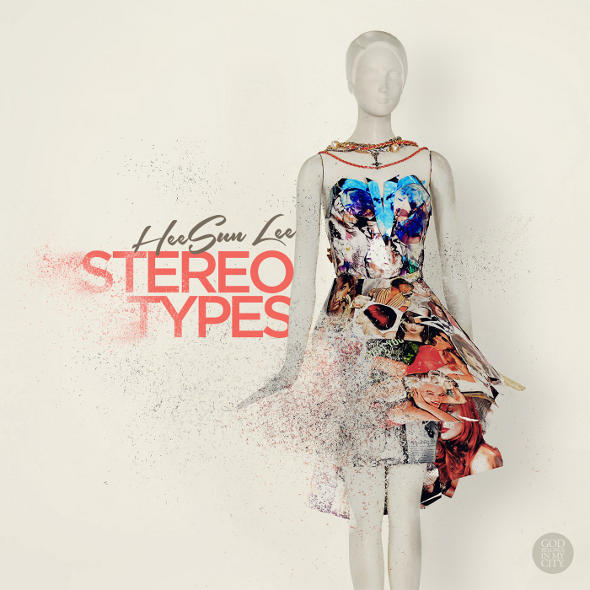Bible Study
Leader Guide
Album: Stereotypes
Song: I Break Stereotypes
From: YLO 96 (Summer 2014 | Theme: Parents/Family)
Writer: Mandy Kyes | RPM Youth | Galt, California
Theme(s): Stereotyping
Theme
Stereotyping
Objective
Students will discuss the pandemic of stereotyping in their world and see how Jesus approached the stereotypes that were in force in His time.
Warm Up
For this activity, all you’ll need is a whiteboard or large poster. When students come in, explain to them that there are many stereotypes that society has put in place: racism, sexism, careerism, etc. Let students know that in the next five minutes they will come up and write down a stereotype they’ve heard or have seen society perpetuate in movies, music, school, news, etc. For instance, “All girls like/should like the color pink” or “All smart people wear glasses.” Some of the responses that you’ll see may shock you; be prepared to tackle the hard ones. After five minutes is up, discuss some of the responses that the students wrote.
Transition
Ask the students if they’ve been stereotyped based on how they look, what they do, or how they act. Ask whether stereotypes are fail-proof. In truth, people who base conclusions on things they couldn’t possibly know create the stereotypes. Let the students know that a new rising musician, named HeeSun Lee, has a song called “I Break Stereotypes” that aims to dismiss the stereotypes that have surrounded people, to show that one’s character is beyond stereotyping; you aren’t the stereotypes people place on you.
The Song
Play the song and have students fill out the Stereotypes section on their handouts.
Transition
Discuss some of the lyrics that really stood out to some of the students. Discuss what students think the message of the song is overall.
Bible Study
Let students know that stereotypes, including the ones that HeeSun Lee describes, aren’t a new concept. Rather, they’ve been around for quite some time. We’re going to take a look at what the Bible has to say about stereotypes, and even how Jesus responded to them.
Luke 10:25-30 – “The Parable of the Good Samaritan.” Discuss with students what the parable is describing, and explain to them that Jesus’main followers, Jews, despised Samaritans for religious differences, and that difference continued to spill over into a general disgust for them. However, Jesus is telling the people that loving their neighbor doesn’t just mean the ones that they like, but rather, anyone who may cross their path, despite who they are.
Explain that a “Priest” was a person who represented humanity to God, and God to humanity. Priests were highly respected and achieved their status through much education, service, and lots of political savvy. A “Levite” was someone who hadn’t yet achieved “Priest” status, but worked at the church, taught Bible studies, and assisted with the duties of the Priests. All Priests were Levites, but not all Levites were Priests, if that makes sense.
Go over their answers to the questions under the Break ’Em section of their Student Guide.
• How do you think the people reacted to Jesus saying that only a despised Samaritan stopped to help the man, even after a Priest and Levite passed by?
• Why do you think Jesus specifically used Samaritans in His parable?
(His main followers were Jews who couldn’t get over the stereotypes that blanketed all Samaritans.)
• Do you think the man who was robbed and beaten up cared that he was receiving help from a Samaritan? (Of course not. If you were bleeding profusely and needed help, you wouldn’t care who was helping!)
John 7:24 – “Stop judging by mere appearances, but instead judge correctly.” HeeSun Lee makes it clear in “I Break Stereotypes” that she herself has been stereotyped into categories that don’t really define her. She has been judged based on how she looks instead of the person she really is.
• Have you ever been stereotyped based on your appearance? If so, what was said about you?
• What does “judge correctly” mean in this verse? (You may want to expand on the context of why Jesus said this.)
• If just one stereotype was broken tomorrow, how do you think that would affect your school?
Wrap Up
Let students know that stereotypes will not disappear any time soon, but that they can help diminish their influence by not contributing to them. Have them fill out their Judge Correctly section and end with a prayer that asks for the Lord to help them (including you) to not take part in stereotyping. Instead, ask God for help in being a good neighbor to those around them despite society’s labels. Encourage students to break their own stereotypes that have been placed on them (sometimes, even by themselves), and focus on who they are in Christ.
GET FREE RESOURCES FOR YOUR STUDENT MINISTRY
Sign up for our need2know emails crammed full of free Bible studies, worship resources, ideas, links, and more.


